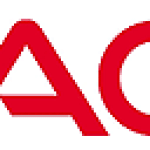- Industry: Software
- Number of terms: 11119
- Number of blossaries: 0
- Company Profile:
Oracle Corporation, an enterprise software company, engages in the development, manufacture, distribution, servicing, and marketing of database, middleware, and application software worldwide.
Provide a mechanism for communicating phonetic information along with the ideographic characters used by languages such as Japanese.
Industry:Software
A 1993 ISO/IEC standard character set. It is a fixed-width, 16-bit Unicode character set. Each character occupies 16 bits of storage. The ISO Latin1 characters are the first 256 code points, so it can be viewed as a 16-bit extension of ISO Latin1.
Industry:Software
A fixed-width, 32-bit Unicode character set. Each character occupies 32 bits of storage. The UCS-2 characters are the first 65,536 code points in this standard, so it can be viewed as a 32-bit extension of UCS-2. This is also sometimes referred to as ISO-10646.
Industry:Software
A SQL NCHAR datatype (NCHAR, NVARCHAR2, and NCLOB). You can store Unicode characters in columns of these datatypes even if the database character set is not Unicode.
Industry:Software
The ability to use as many languages as desired. A universal character set, such as Unicode, helps to provide unrestricted multilingual support because it supports a very large character repertoire, encompassing most modern languages of the world.
Industry:Software
A Unicode 3.0 UTF-8 Oracle database character set with 6-byte supplementary character support. It is used only on EBCDIC platforms.
Industry:Software
Extended Binary Coded Decimal Interchange Code. EBCDIC è una famiglia di insiemi di caratteri codificati utilizzati principalmente su sistemi IBM.
Industry:Software
A mark that changes the sound of a character. Because the common meaning of accent is associated with the stress or prominence of the character’s sound, the preferred word in Oracle Database Globalization Support Guide is diacritic.
Industry:Software
A property of an element that consists of a name and a value separated by an equals sign and contained within the start tags after the element name. In this example, <Price units='USD'>5</Price>, units is the attribute and USD is its value, which must be in single or double quotes. Attributes may reside in the document or DTD. Elements may have many attributes but their retrieval order is not defined.
Industry:Software
